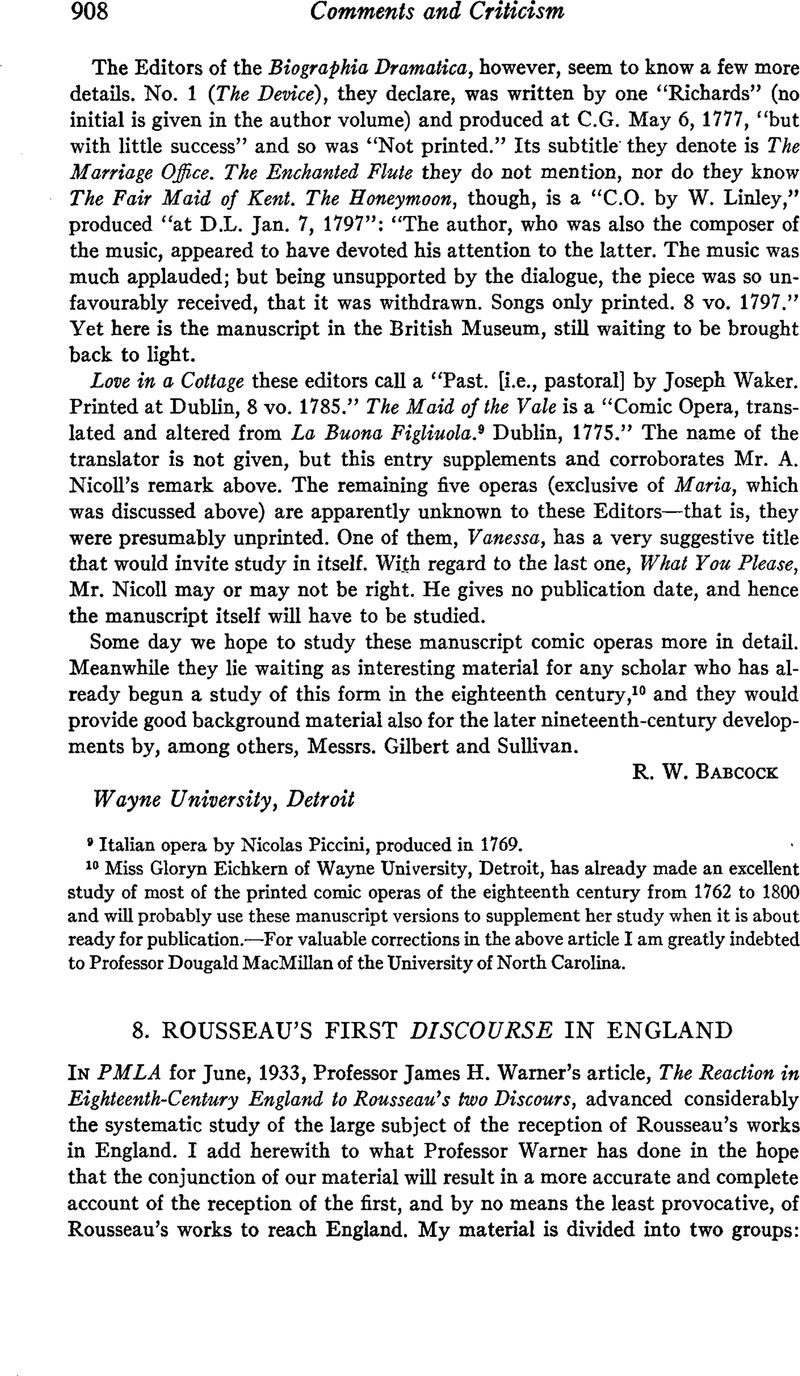Published online by Cambridge University Press: 02 December 2020

1 This more precise dating of the third translation gives chronological support to my belief that Oliver Goldsmith's letter of October 10, 1760, in the Citizen of the World was prompted by the first Discourse in its third translation, rather than being, as Professor Warner suggested, a continuation of the general attack upon the second Discourse, a translation of which did not appear until January, 1762. Although Goldsmith's letter involves the implications of both discourses, his opening sentence announces his purpose of discussing a dispute “which has for some divided the philosophers of Europe . . . whether the arts and sciences are more serviceable or prejudicial to mankind.” Goldsmith's position in the dispute is described below.
2 There were many other advertisements of the Miscellaneous Works; but these suffice, first to date the publication, and second to indicate the length of time during which notices continued to appear.
3 See Notes and Queries, 11th ser., iii, 405, article “Rousseau and England” by Alfred Robbins. These two comments are here given in full.
4 Bowyer's preface is reprinted, almost in full, in Professor Warner's article.
5 Wynne's preface is dismissed by Professor Warner as of no importance. However, if only by indirection, Wynne declares himself in favor of Rousseau's position in the controversy.
6 Mentioned by Professor Warner. It may be noted that the title-page of the pamphlet erroneously describes the contents as Gautier's Refutation and Rousseau's answer to it.
7 ii, 253–255.
8 See above, note 1.
9 Dr. Johnson later deplored such signs of instability in his friend. See Boswell, Life, ed. Hill (Oxford, 1887), I, 408.
10 iii, 369–372.
11 xxxix (Sept. 1768), 213.—This review is mentioned by Professor Warner, but its author is not identified. See Benjamin C. Nangle, The Monthly Review First Series 1749–1789 Indexes of Contributors and Articles (Oxford, 1934), p. 190. Kippis's reputation as one of the leading dissenters of the day makes his opinion all the more significant.
12 See Fuseli, Remarks, etc. (London, 1767), 2–19.
13 See Young, Letters, etc. (London, 1769), 351–360. The entire passage was reprinted in the Monthly Review, XL (Feb., 1769), 109–113.